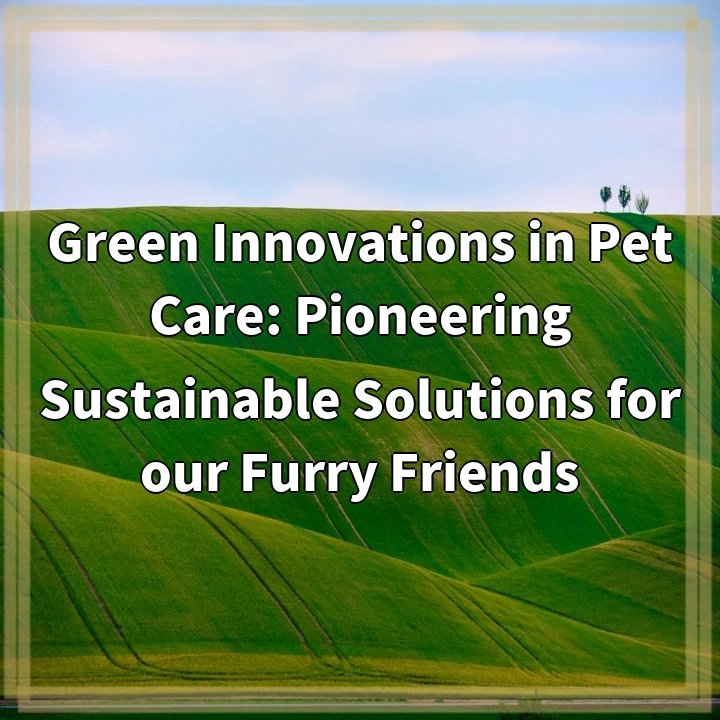
Green Innovations in Pet Care: Pioneering Sustainable Solutions for our Furry Friends
What it is:
As pet ownership continues to rise globally, it is crucial to address the environmental impacts associated with traditional pet care practices. Green innovations in pet care focus on developing sustainable solutions that minimize the carbon footprint and negative ecological consequences of pet ownership. These innovations encompass a range of products, services, and practices that prioritize environmental responsibility without compromising the well-being of our furry friends.
Real-World Problems:
A number of challenges exist in the pet care industry that contribute to environmental degradation. Conventional pet food production, for instance, consumes vast amounts of land, energy, and water resources while often relying on synthetic ingredients and unsustainable farming practices. Additionally, traditional pet waste management methods, including plastic bags and non-biodegradable litter, contribute to landfill waste and pollution. Furthermore, the pet grooming industry utilizes a plethora of harsh chemicals that can find their way into waterways, adversely impacting aquatic ecosystems.
Furthermore, the pet product industry often produces a substantial amount of single-use plastic waste, from packaging to toys and accessories. The carbon footprint associated with pet transportation – for veterinary visits or grooming appointments – is also a concern. These problems highlight the need for innovative and sustainable approaches to pet care that address these environmental issues head-on.

Solutions for Green Innovations in Pet Care
1. Sustainable Pet Food:
To tackle the environmental impacts of pet food production, innovative companies are developing sustainable alternatives. These include plant-based diets that use ingredients with a smaller ecological footprint, organic and locally sourced ingredients, and eco-friendly packaging options. By opting for sustainable pet food options, pet owners can reduce the carbon footprint of their pets while ensuring they receive a nutritious diet.
2. Eco-Friendly Waste Management:
Addressing the issues of pet waste, eco-friendly alternatives are being introduced. Biodegradable poop bags made from compostable materials are becoming widely available. Additionally, environmentally friendly pet litter options, such as those made from recycled paper or natural materials like wood or corn, help reduce landfill waste and minimize the environmental impact of pet waste disposal.
3. Non-Toxic and Natural Grooming Products:
To mitigate the use of chemical-laden grooming products, manufacturers are developing non-toxic and natural alternatives. These products are free from harmful ingredients like parabens, sulfates, and artificial fragrances. Using these eco-friendly grooming products ensures the well-being of pets while minimizing the negative impact on water systems and aquatic life.
4. Sustainable Pet Product Alternatives:
Innovative companies are creating sustainable alternatives to traditional pet products. This includes eco-friendly pet toys made from natural materials, biodegradable or recyclable bedding, and sustainable accessories like collars and leashes made from repurposed materials. By choosing these sustainable options, pet owners can reduce their environmental footprint and support a circular economy.
5. Earth-Friendly Pet Transportation:
Minimizing the carbon emissions associated with pet transportation is another area of focus. This can involve promoting the use of public transportation or carpooling for vet visits or using eco-friendly modes of transportation, such as electric vehicles or bicycles. By adopting greener practices, pet owners can contribute to a cleaner and healthier environment.















